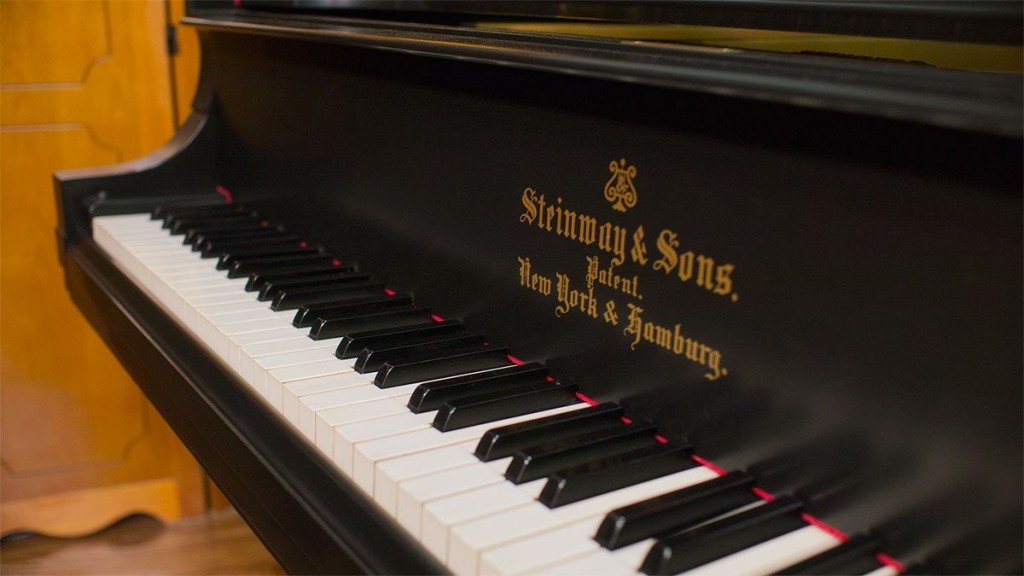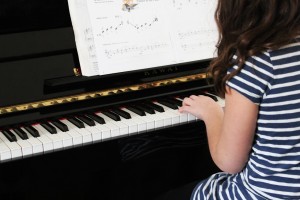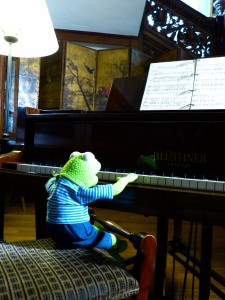
In 5 Bad Piano Habits You Should Break, I explained why bad piano habits are a problem and described some of the common bad habits that pianists develop. Here are some more bad habits that you should break. (Any pianists or potential pianists out there, read carefully!)
 Bad Habit 1: Failing to Practice!!!!
Bad Habit 1: Failing to Practice!!!!
I cannot recall teaching a single unproductive music lesson when my student remembered to practice. I can, however, recall numerous lessons where I have to repeat the same instructions and the student has to repeat the same material because they didn’t touch the keys between lessons. You will only progress by practicing, and piano lessons will only help you if you apply the material you’re learning by practicing during the week. A piano teacher’s job is about giving you the tools and information you need to learn to play, but you will only learn to play by actually doing what the teacher is teaching you.
Bad Habit 2: Failing to Practice Daily
This point goes right along with the previous one. If you only went to the gym once a week for a 30 minute session with a personal trainer, how quickly would you see your body change? What if you only exercised twice a week? It’s the same with practicing piano. If you go to the gym every day, before long you’ll see and feel noticeable changes in your body. If you practice piano every day, you’ll cement the music in your brain and your fingers, and your fingers will develop the strength and technique to play well. Your progress will be much faster with daily practice than with once-a-week or twice-a-week practice. It helps to establish a routine: always practice right after work, or right before school, or right after dinner, or whatever routine works best for you.
 Bad Habit 3: Having Bad Posture
Bad Habit 3: Having Bad Posture
A piano bench has no back to lean against. Unfortunately, this leads a lot of young or inattentive pianists to slouch while playing. Not only could this cause you a lot of back pain, it also adds tension throughout your whole body and makes playing piano more tiring and difficult. It tells your brain that your body isn’t comfortable and doesn’t like what you’re doing. Furthermore, slouching makes you less engaged in the task, which makes your music and your practicing less interesting and less focused. In sum, it can ruin the whole experience of playing piano. From now on, every time you sit at the piano, take a moment to adjust your posture so that you’re sitting up straight with your feet planted flat on the floor near the pedals. Your posture should be straight and focused, yet comfortable. If the bench has an adjustable height or if you are using a chair, make sure that your elbows are slightly higher than the keys.
Bad Habit 4: Sitting Too Close or Too Far Away
Many pianists sit too close to the piano while some sit too far away. If you’re sitting too close to the piano, you force your hands and wrists into awkward angles so your fingers can reach the keys, which makes playing difficult or painful. If you’re sitting too far away, your hands won’t reach the keys comfortably and you will strain your neck and back as you squint to read the music. Unless no one has touched it since you last sat there, you should always move the piano bench when you sit down so that it’s in a good position for you.
Example: If you and your child or your younger, smaller sibling are both taking piano lessons, most likely they will need the piano bench to be closer to the piano than you do. Each of you should be moving the bench when you sit down to practice.
The piano bench should be situated so that when you are at the keys, your upper arms and elbows fall comfortably to your sides and your forearms are approximately parallel to the floor. If your arms are outstretched with your elbows in front of you so that you can reach the keys, or if they are pushed back behind your back, you need to move the bench.
Bad Habit 5: Playing Too Fast or Rushing
Playing too fast usually stems from a desire to play it at the correct speed before you are able to do so. You should always start out a new piece slowly enough for your fingers to play the entire song — even the difficult passages — at a steady, even tempo. This is one of the hardest thing for beginner pianists to learn, but it’s very important. If you play too fast and you can’t keep up with it, you could become discouraged. You could confuse your fingers and your brain about how the song is really supposed to sound. By starting slowly and then gradually increasing the tempo until you can play it at the correct speed, your fingers will get better and the music will sound better.
In conclusion: No pianist becomes an expert all at once. Many students cut corners and unknowingly develop bad habits because they want to sound good right away. Even if you have a gifted ear and can pick out any song on the piano without assistance, you won’t build the skills, the finger strength, the understanding of music theory, the ability to read music, etc. without practicing good habits. Hopefully by reading this you’ve become aware of any bad habits you might have, and hopefully you’ve learned something valuable that will help you as you work on your piano skills. If you’d like more help, I’d be happy to teach you piano lessons! Developing good piano habits with regular routine practice sessions will help you avoid crippling bad habits and allow you to become the skilled pianist you want to be.
